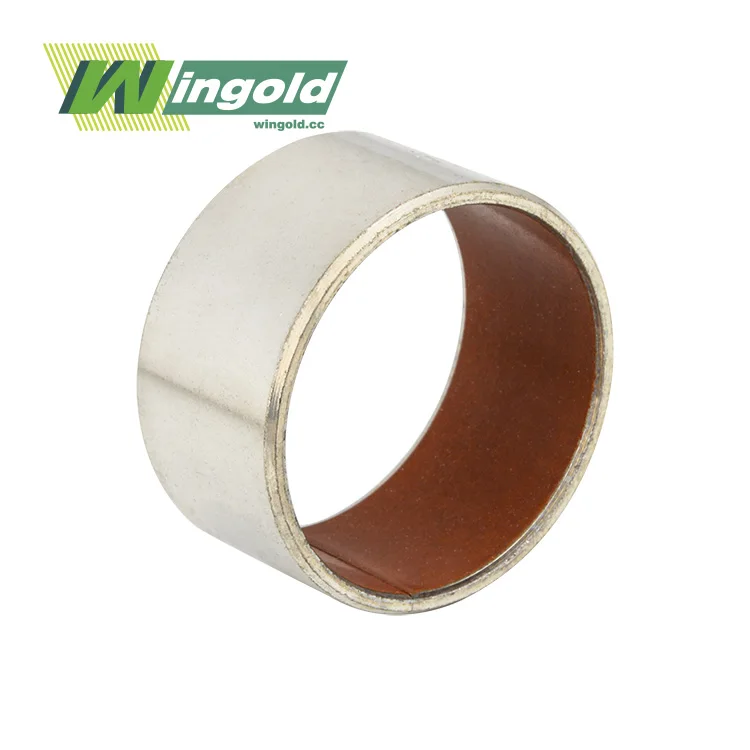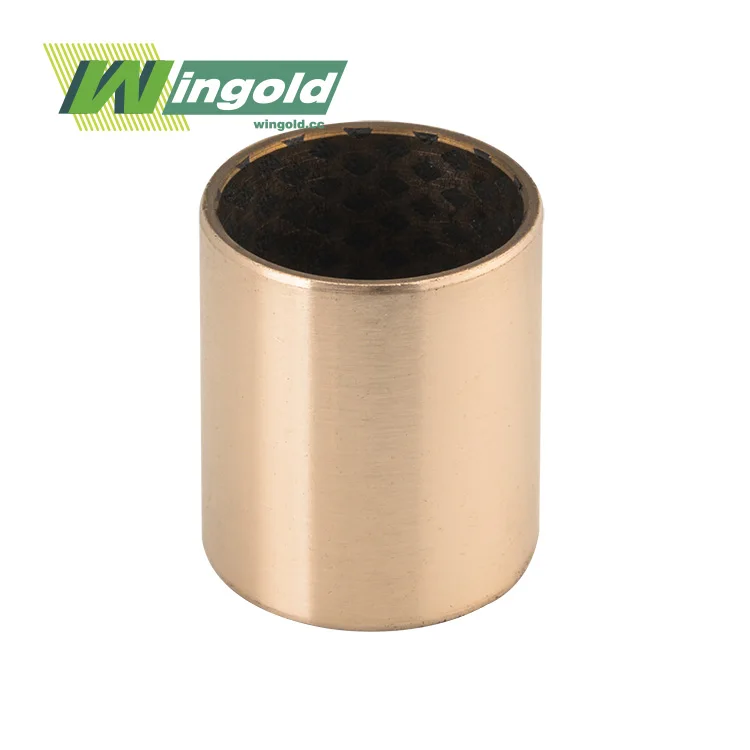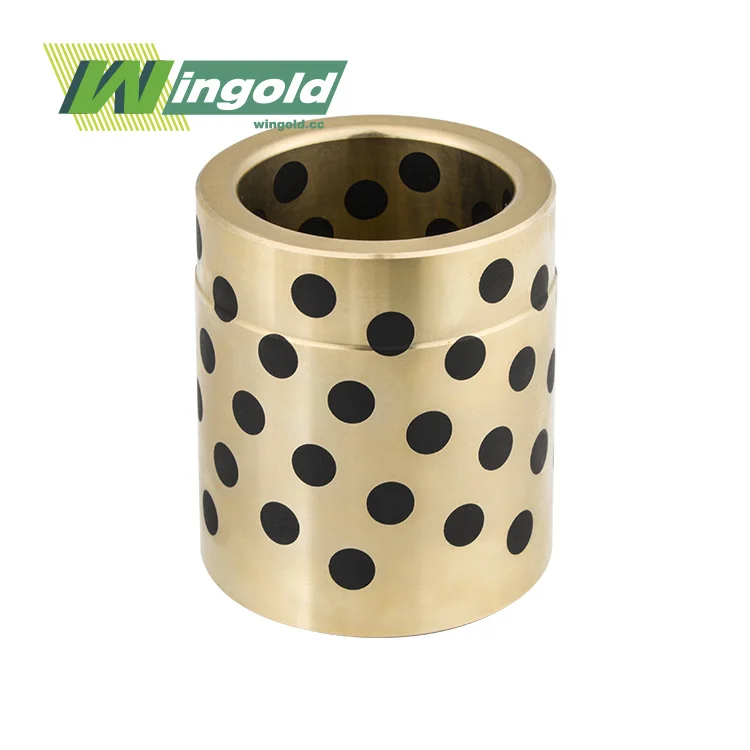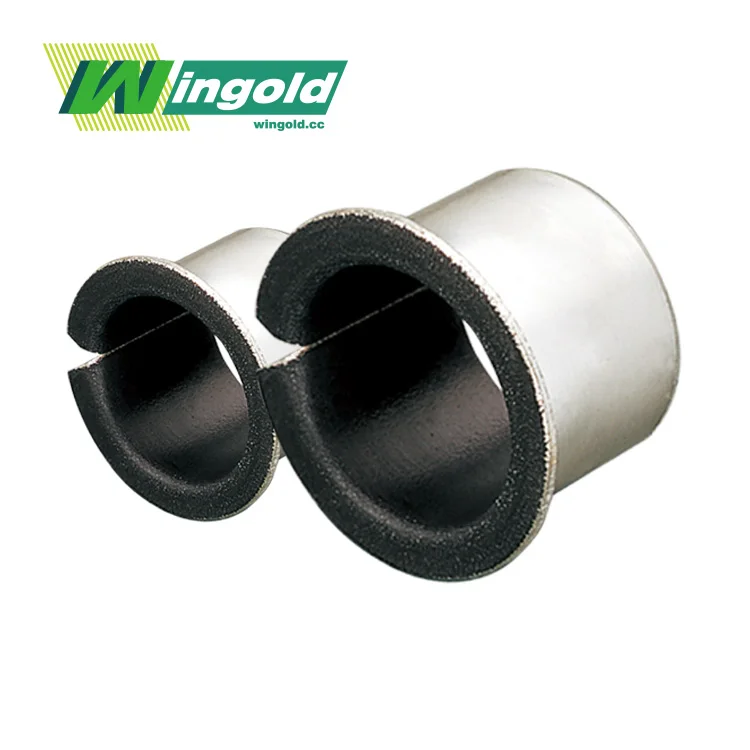
The Science Behind Powdered Metal Bearing Technology
Manufacturing Process: Precision in Every Particle
The travel of powdered metal heading starts with the determination of high-purity metal powders, ordinarily bronze or iron-based amalgams. These powders are carefully mixed to accomplish particular mechanical and tribological properties suited for requested applications. The uniform blend is at that point compacted in precision-engineered molds beneath tall weight, shaping the starting shape of the bearing. This step guarantees dimensional exactness and consistency, laying the foundation for the component's quality and unwavering execution.
Following the compaction stage, the preformed bearings are subjected to a high-temperature sintering process. This critical step fuses the metal particles at the molecular level without melting them entirely, resulting in a strong yet porous structure. The sintering process involves carefully controlled heating and cooling cycles, which determine the final porosity—typically between 10% and 25%. This engineered porosity is essential, as it enables the self-lubricating capabilities that define powdered metal bearings.
Impregnation: The Secret to Self-Lubrication
Once the sintering process is complete, the bearings are subjected to a critical vacuum impregnation process, which is essential for enabling their self-lubricating functionality. During this stage, the sintered bearings—characterized by their interconnected porous structure—are placed in a vacuum chamber and exposed to high-quality lubricating oil. The vacuum removes trapped air from the pores, allowing the oil to deeply infiltrate every microscopic cavity within the metal matrix.
This forms an internal reservoir of lubricant that is evenly distributed throughout the bearing. During operation, as heat and motion are introduced, the oil is gradually drawn to the surface through capillary action, providing a consistent film of lubrication. This self-regulating mechanism ensures smooth, quiet operation, reduces friction and wear, and minimizes maintenance demands. It also eliminates the need for external lubrication systems, enhancing reliability and reducing total operational costs.
Performance Advantages of Powdered Metal Bearings
Enhanced Wear Resistance and Longevity
The self-lubricating nature of powdered metal bearings contributes significantly to their wear resistance. The continuous supply of lubricant from the porous structure minimizes metal-to-metal contact, reducing friction and wear. This results in extended component life and decreased maintenance requirements. Moreover, the controlled release of lubricant ensures that the bearing surfaces remain adequately lubricated even under challenging conditions. This is particularly beneficial in applications where traditional lubrication methods may be ineffective or impractical.
Adaptability to Diverse Operating Conditions
Powdered metal bearings exhibit remarkable versatility in terms of operating conditions. They can function effectively across a wide temperature range, typically from -40°C to 350°C. This temperature resilience makes them suitable for various applications, from cryogenic environments to high-temperature industrial processes. Additionally, these bearings can withstand substantial loads, with some variants capable of handling up to 140 MPa. Their low friction coefficient, ranging from 0.1 to 0.3, further enhances their performance in high-load scenarios.
Applications and Industry Impact
Transforming Industrial Machinery
Powdered metal bearings are widely utilized in industrial machinery due to their exceptional self-lubricating capabilities. In systems like conveyors, pumps, and compressors, these bearings provide smooth, consistent operation with minimal maintenance requirements. Their ability to reduce friction and wear lowers the frequency of service interruptions, resulting in less downtime and lower lubrication costs. This translates directly to higher productivity, improved operational efficiency, and a lower total cost of ownership over time.
Automotive Innovation
The automotive industry increasingly incorporates powdered metal bearings into engines, transmissions, and other critical systems. Their ability to endure extreme temperatures, heavy loads, and continuous operation makes them ideal for high-stress automotive environments. These bearings help reduce internal friction, which in turn boosts fuel efficiency and supports lower emissions. Their compact, cost-effective design also aligns with modern vehicle manufacturing trends, contributing to lighter components and overall performance enhancements.
Advancements in Aerospace Technology
In the aerospace sector, where precision and reliability are non-negotiable, powdered metal bearings play a crucial role. Their self-lubricating nature is particularly valuable in high-altitude or vacuum environments, where traditional lubrication methods are ineffective or impractical. These bearings ensure long-lasting, maintenance-free performance in aircraft components, satellites, and space systems. Their high-temperature resistance and consistent performance under variable loads make them indispensable in advanced aerospace engineering applications.
Conclusion
Powdered metal bearings have undeniably revolutionized self-lubrication in the world of mechanical components. Their unique manufacturing process, controlled porosity, and oil impregnation technique have created a new standard in bearing technology. As industries continue to seek more efficient, reliable, and low-maintenance solutions, these innovative bearings are poised to play an increasingly crucial role.
The self-lubricating properties of powdered metal bearings not only enhance performance and longevity but also contribute to reduced environmental impact through decreased lubricant consumption. As research and development in this field progress, we can anticipate even more advanced applications and improvements in bearing technology.
For more information about our powdered metal bearing solutions and how they can benefit your specific application, please don't hesitate to contact us at info@wingold.cc. Our team of experts is ready to assist you in finding the perfect bearing solution for your needs.



